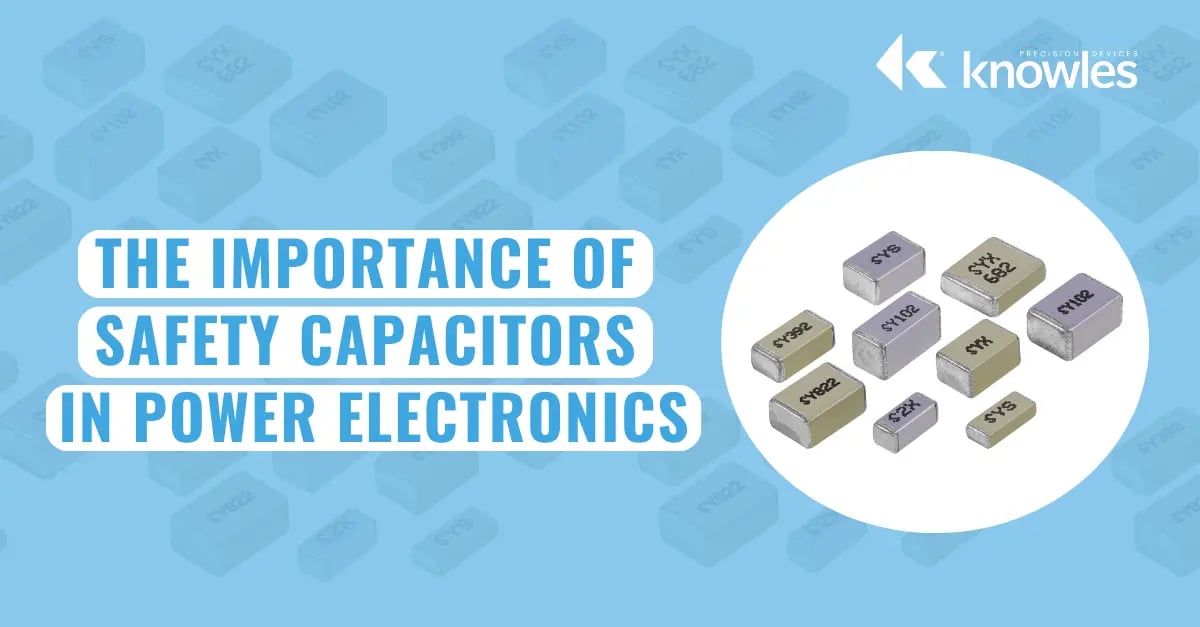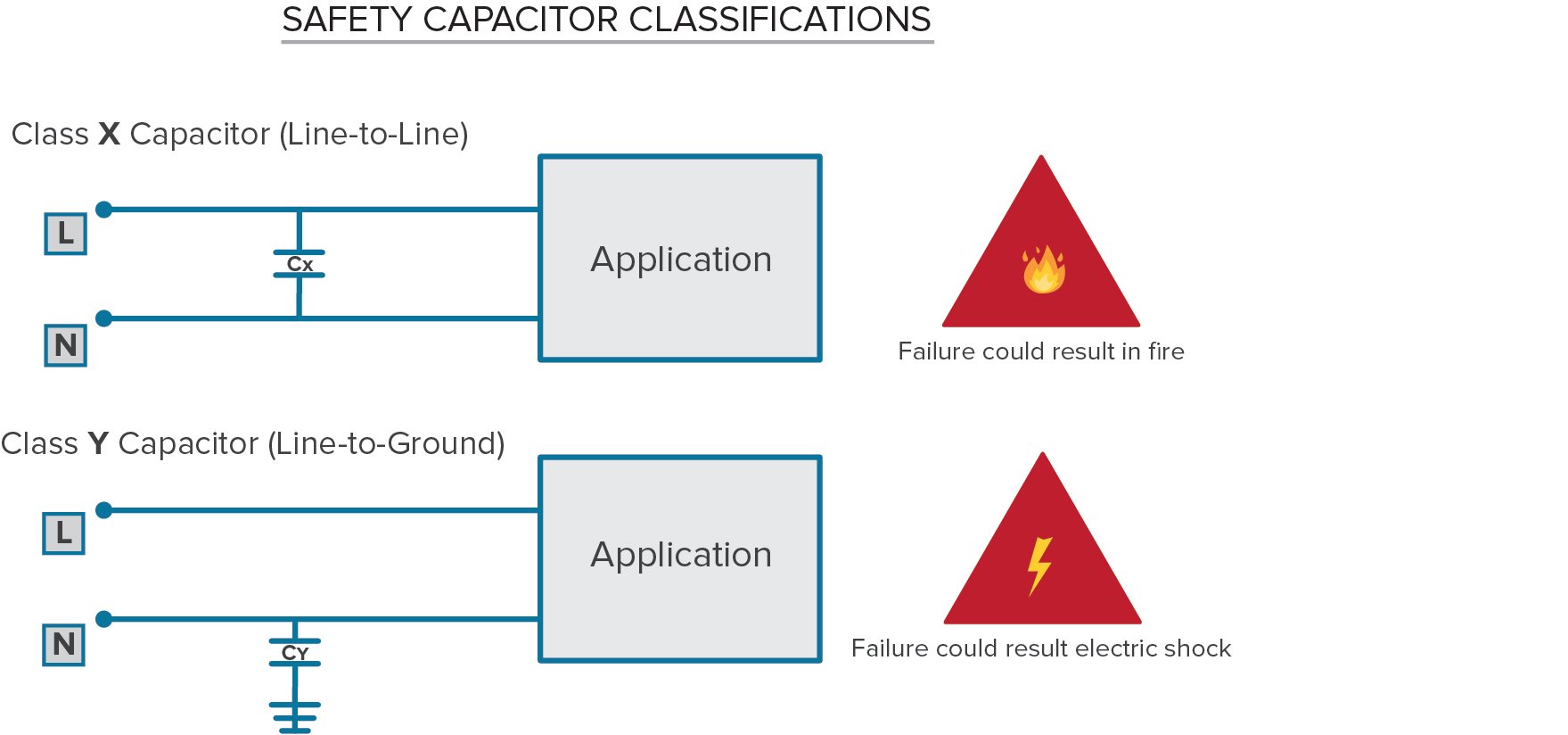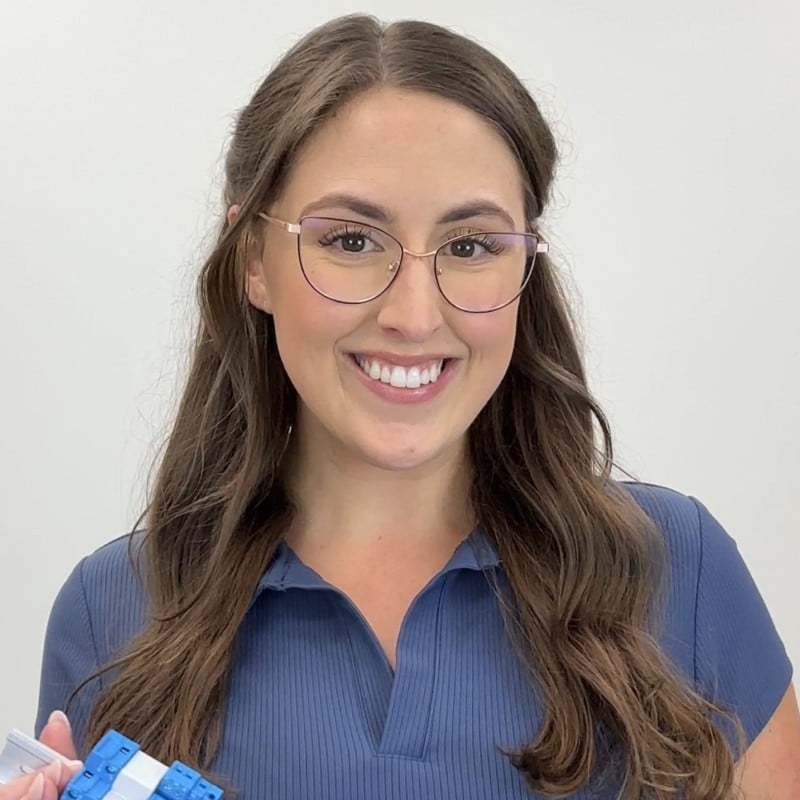Safety capacitors are designed to mitigate the effects of transient voltages and interference in electrical and electronic circuits, especially high-voltage applications, ensuring their safe operation. Even everyday devices need safety capacitors: modems and other telecoms equipment, AC-DC power supplies, power distribution switchgear, and electric vehicles (EVs) and other automotive applications.

Benefits of Safety Capacitors
Beyond the primary role of ensuring safety, safety capacitors are selected based on circuit requirements and function to safeguard the circuit from transient voltage spikes by diverting the excess energy to ground. In addition, safety capacitors filter electromagnetic interference (EMI). As more and more electronic devices enter the market, they can create EMI that can cause devices to malfunction, crash, or fail. EMI filtering blocks adverse inferences and ensures a cleaner signal.
Classes of Safety Capacitors
In general, there are two classes of capacitors, Class-X and Class-Y, that are both used to minimize EMI in different applications.
- X Capacitors: Class-X capacitors, also known as "across-the-line capacitors,” are used between the wires carrying the incoming AC current. These offer line-to-line protection, which means that if there is a failure, a short may occur, but there is no risk of shock. An X capacitor failure usually causes a fuse or circuit breaker to open.
- Y Capacitors: Class-Y capacitors, also known as "line-to-ground capacitors" or “line bypass capacitors,” offer line-to-ground protection, which generally means that if a failure with the ground occurs, there is a risk for shock. However, Class-Y safety capacitors must meet rigorous specifications, minimizing the chance of electric shock.
- X/Y Capacitors: Some safety capacitors handily combine classes, for example, X1/Y2. This simply means that the capacitor can be used as an X1 capacitor in an across-the-line application or as a Y2 capacitor in the line-to-ground portion of the circuit.

Figure 1. A representation of where Class X and Class Y safety capacitors are placed and the associated risks.
Choosing a Safety Capacitor – Ceramic or Film?
Two common types that can fit the role of safety capacitors are multilayer ceramic capacitors (MLCCs) and plastic film capacitors. Each has its benefits depending on the specific application. Some characteristics to consider when choosing between capacitors include the following:
- Temperature range
- Size constraints
- Voltage rating
- Capacitance value
- Certification standards (like X and Y ratings for line-to-line and line-to-ground applications)
- Cost
Film Capacitors
Film capacitors can withstand a wide temperature range and often have higher capacitance value. Film capacitors also offer self-healing, which enables the device to recover from a dielectric breakdown with only a small reduction in capacitance. However, film capacitors are large in size relative to their capacitance. They are also often more expensive and used in voltage/capacity ranges that cannot be covered by ceramic capacitors.
Multilayer Ceramic Capacitors
MLCCs can achieve higher capacitance values in a smaller volume than film capacitors. They are usually better for low-power applications. For example, MLCCs are well-suited for space-sensitive applications like antenna coupling. They are also available with special terminations to accommodate automotive technology with applications like onboard chargers, inverters, DC/DC converters, and other equipment in EVs.
And while film capacitors have an impressive temperature range, MLCCs can also withstand high temperatures, high voltage, and high power. Additionally, Knowles Precision Devices MLCCs are available with a FlexiCap™ termination. FlexiCap™ is a proprietary flexible epoxy polymer termination material that is applied to the device under the usual nickel barrier finish to accommodate a greater degree of board bending than conventional capacitors, reducing the risk of mechanical cracking.
Knowles Precision Devices Is Your Safety Capacitor Resource
If you need an expert to help you choose a safety capacitor, Knowles Precision Devices is the place to start. Our latest enhanced range of AEC-Q200 qualified Safety Certified capacitors comply with international UL/cUL and IEC/EN specifications and offer designers the option of using a surface MLCC to replace film types.
The safety advantages of our MLCCs include
- Class Y2 250Vac ranges
- Class X1 & X2 305Vac ranges
- All ranges have a safety-certified DC voltage rating (unique in the industry)
- All ranges are certified as humidity robustness grade IIIB (unique in the industry)
Plus, our high-voltage capacitor expertise allows us to offer capacitance ranges that are among the highest in the market for selected case sizes.
Find out more about Knowles Precision Devices safety capacitors.

